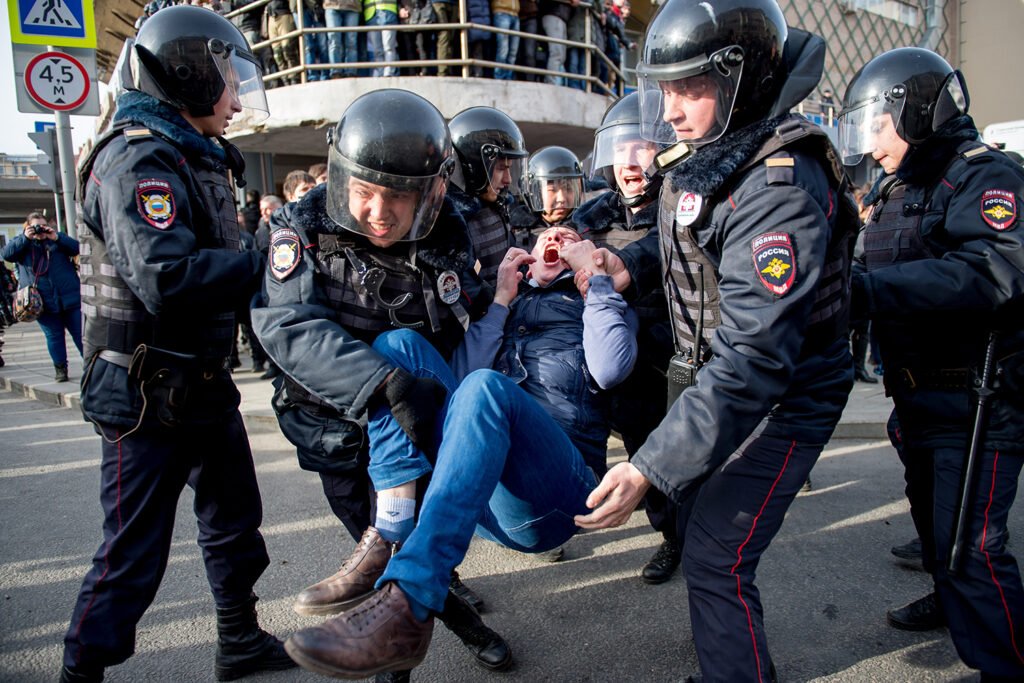War often diverts the world’s attention away from human rights and humanitarian concerns, perhaps on purpose. With a significant military buildup in Eastern Europe already underway, the international community must also address the ongoing human rights issue caused by Russian authorities.
Human Rights House Foundation stated in its October 2021 report that it has never been more difficult or hazardous for human rights advocates and organizations to function in the Russian Federation. There is now a legislative framework in place in the Russian Federation that permits the government to regulate or shut down any organization or activity that it deems a danger. The Russian government is aggressively utilizing this to attack human rights advocates and organizations.
According to a list kept by Radio Free Europe/Radio Liberty, as of the end of 2021, more than 180 people and organizations, many of which strive to promote and preserve human rights in Russia and abroad, have been designated as “foreign agents.” Opposition and dissenting voices are frequently repressed, sometimes permanently. Russian authorities often utilize anti-terrorism and anti-extremist legislation to pursue genuine human rights activities. The State Duma, long seen as a rubber stamp of the Kremlin, has approved a slew of severe measures aimed at limiting or eliminating fundamental rights.
The UN has frequently criticized human rights breaches committed by the Russian Federation’s occupying authority in Crimea. Meanwhile, in the eastern Ukrainian region of Donbas, troops supported by Russian authorities are prosecuting human rights advocates and exacerbating the “existing environment of fear that limits the practice of fundamental freedoms,” according to the UN Office of the High Commissioner for Human Rights.
The UN High Commissioner for Human Rights has noted reports of persistent human rights breaches in the Georgian regions of South Ossetia and Abkhazia, where local authorities are supported by Russia. Belarusian authorities, who have essentially criminalized human rights activity by shutting down every human rights organization in the country, continue to receive diplomatic, military, and political backing from Russia.
Russian involvement in the area impedes democratic transitions and promotes an anti-human rights and anti-civil society agenda through states and non-state entities such as the Orthodox Church and extremist far-right organisations. Dozens of nations have passed legislation that is eerily similar to Russia’s in that it attacks and criminalizes legitimate human rights activity. Even within the European Union, authoritarian authorities are following in Russia’s anti-human rights footsteps. Authorities in Bulgaria, Hungary, and Poland are actively working to delegitimize independent media and human rights advocates.
While the world’s attention is rightly focused on preventing the breakout of armed conflict in Eastern Europe, the international community must simultaneously handle the security situation and push back against the Russian authorities’ human rights violations.
While the crises are distinct, they are interconnected, and human rights are receiving insufficient attention. Russia must be placed on the agendas of international and regional human rights groups and procedures in order for the Russian authorities’ activities to be publicly scrutinized. States should encourage appropriate UN Special Procedures mandate holders, as well as experts and rapporteurs from the Organization for Security and Cooperation in Europe, the European Union, and the Council of Europe, to visit Russia, occupied Crimea, and other regions under Russian control.
At the same time, governments should and must provide actual protection and assistance to human rights advocates and their families who face retaliation. If and when the human rights crisis in Russia and Russian-controlled regions worsens, the international community must take new actions to hold those responsible for abuses accountable. The Russian human rights issue is a domestic as well as an international one, and the international community must keep its emphasis accordingly.


